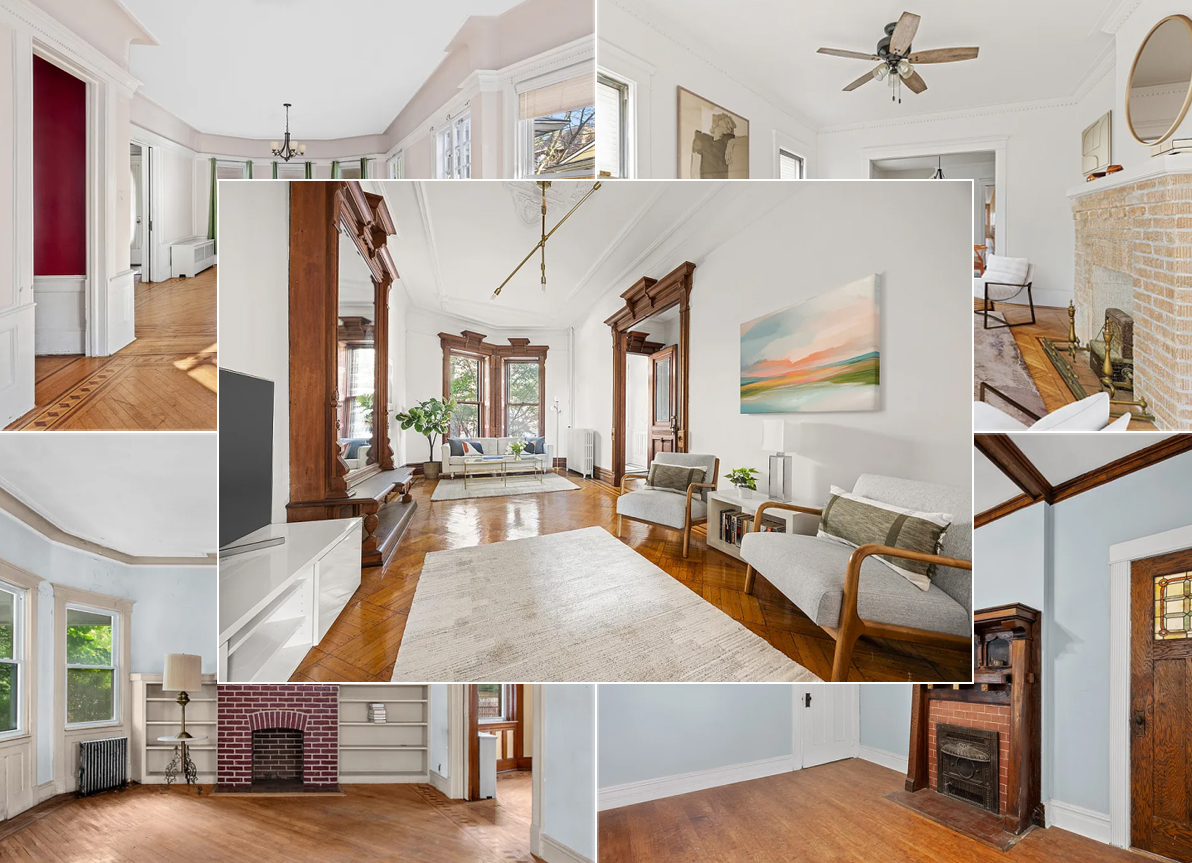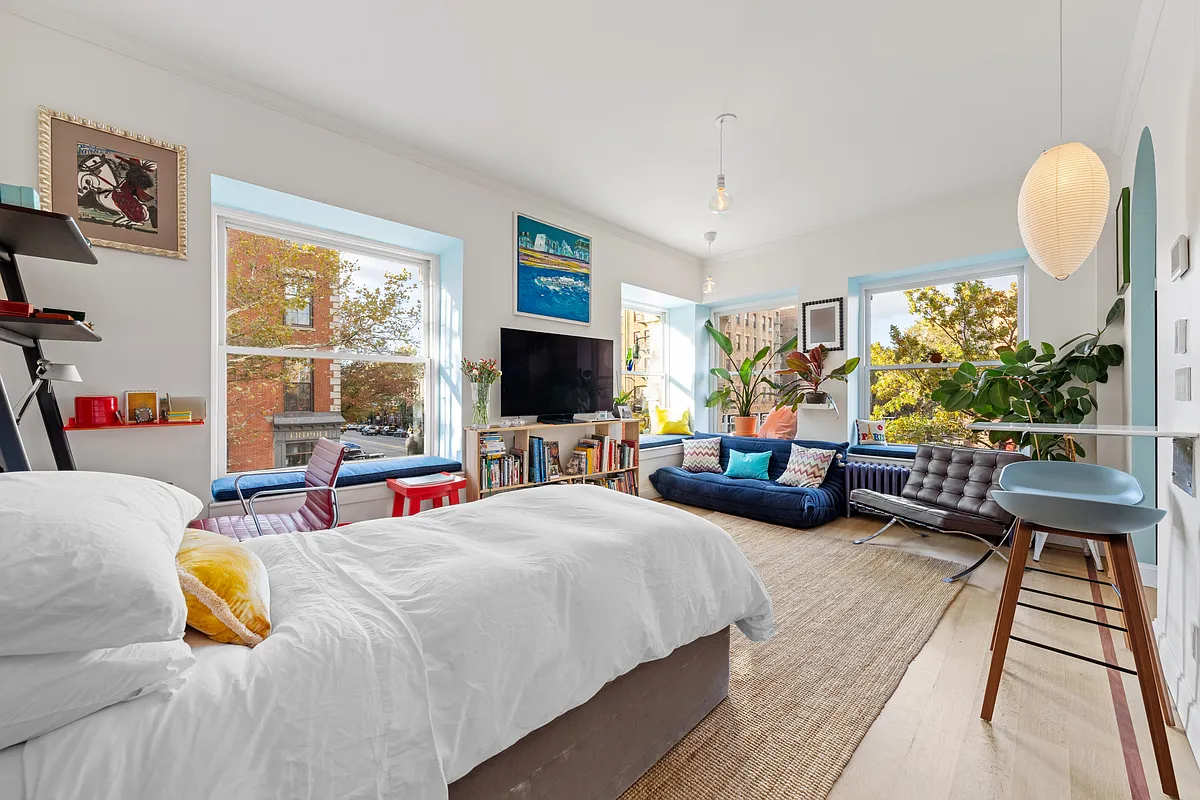The Price of Bertha Lewis' Silence
How much does it cost to buy Bertha Lewis’ support? According to this week’s Brooklyn Papers, half a million bucks. At the end of an article detailing the racial rifts in the debate (which we think are actually more class differences that happen to fall along racial lines), we learn that for all Ratner’s lip…

 How much does it cost to buy Bertha Lewis’ support? According to this week’s Brooklyn Papers, half a million bucks. At the end of an article detailing the racial rifts in the debate (which we think are actually more class differences that happen to fall along racial lines), we learn that for all Ratner’s lip service to affordable housing, if he ends up not keeping up his end of the bargain to make half the units “affordable”, all he has to do is pay Lewis’ organization, Acorn, $500,000. A drop in the bucket to buy the silence of a woman who could have been a real thorn in his side.
How much does it cost to buy Bertha Lewis’ support? According to this week’s Brooklyn Papers, half a million bucks. At the end of an article detailing the racial rifts in the debate (which we think are actually more class differences that happen to fall along racial lines), we learn that for all Ratner’s lip service to affordable housing, if he ends up not keeping up his end of the bargain to make half the units “affordable”, all he has to do is pay Lewis’ organization, Acorn, $500,000. A drop in the bucket to buy the silence of a woman who could have been a real thorn in his side.
Race War on Yards [Brooklyn Papers]
Berta Lewis = Moron [No Land Grabd]





Can’t we get back on topic and talk about the kissing photos…
David- I am well aware of the huge tax write-offs and I have yet to see a project where luxury housing and lower-to- mid income and Section 8’s are in the same complex or building.The business district in downtown Brooklyn was always viable and Metrotech was not what set off a real estate boom in that area. That began happening in the 70’s and 80’s as Wall Streeters and lawyers realized how convenient the area was- every subway in life goes to downtown Brooklyn, the general area had been stable and desirable because of its landmark status.The courts, A&S and Gage& Tollner were there. I lived there throughout all of it and Metrotech was part of it, but no catalyst. Metrotech is self-contained and set off from the main business area. It has almost no retail stores except for places to eat.So it doesn’t attract many from the community. In addition now, since 9-11 because FDNY headquarters is there, there is much more security for Metrotech, some of which is accomplished by closing off streets and being asked for id before you can go into certain common areas.
Brownbomber- sure in an ideal world that will work. First you’re assuming that A. apartments will actually be set aside and B. They will actually be affordable. Since they define moderate income as around $100,000 I am awaiting what they call low income (75,000?) And as has been pointed out, the average income in Bklyn is 35,000. As far as Ratner’s courage and risk, there’s an awful lot of taxpayer money and tax breaks going his way so I hardly give him points for that. That hardly defines capitalism if you get taxpayers to pay you to make money for yourself. Its called greed. And it is irresponsible. There is not going to be a mix of anything unless you can afford choices limited to stores like Tiffany’s. How about the rest of us who are lower or middle income, have worked hard for years and paid our taxes? How about neighborhoods that health care workers, waiters, office managers, secretaries etc. can afford to live in? They are being shoved out of the City- so who’s going to be here to take your plate in that fancy restaurant you eat in? And as for equating Ratner’s use of eminent domain with its original intent for public works- there is a huge difference and everyone knows it. Gentrification is a form of displacement that happens naturally over time and is a far cry from what you advocate. In fact I would bet if your property was going to be taken over by Ratner you’d be screaming loudest. Then tell me how you don’t care how much he makes or how strategic it is. There is nothing wrong with building in the Atlantic Yards, and it will be good in the long run- but it didn’t have to be done like this- it should have been much more community oriented in terms of scale and intent.
Shahn that is not what I said –
Metrotech (and its Govt incentives) was a major seed that helped spur Downtown Brooklyn’s revival – which has now matured so far past what it was that now the idea of buying/living in the downtown part (i.e. btwn Flatbush ext and Clinton- Water to Atlantic) is now not only possible but appealing.
No one is saying that Metrotech is responsible for the boom – but there is/was no guarantee that Brooklyn had to come so far so fast- Brooklyn could easily be more like the Bronx and trailed the rest of the city.
Metrotech was built at a time (late 80’s early 90’s) where no one was building anything anywhere, and it exposed people who would not otherwise to the economic and social advantages Brooklyn had – if it were not built Brooklyn would be much further behind where it is today.
“It’s probably a fools errand anyway, since the skeptics here won’t even acknowledge the bait-and-switch that’s going on with the current boondogle.”
I’m pro-Atlantic Yards and I feel exactly the same way when I debate with those against it. As entertaining as these debates may be, I don’t think one side will ever convince the other of anything.
I agree with Brownbomber. This is a done deal and construction can’t begin soon enough.
Regarding issue of subsidies – the city and state grant them for almost any major construction that happens in this city. (And other places do this also – remember all those southern and mid-west state bidding for auto plants).
Money goes out to keep brokerage firms downtown, etc, etc, etc.
No way is Ratner or anyone else going to build something so extensive without them.
I still think the real issue of contention is size of project.
If the few parcels not already owned were just left – and no eminent domain taken – would all the anti-domain people drop their objections. No way.
Do the anti-subsidy people rant and rave with every other commercial project that gets built in NYC?
Are they all fighting for ‘affordable housing’ in all the luxury housing being built around downtown brooklyn…like in DUMBO, ClintonHill, Park Slope.
No – the loud objections are only to design, height and density and blocking of views.
So – I respect that many people don’t think the scope of project is appropriate – and wish some of them would stop trashing pro-AY as ‘bought out’, stooges, morons, etc.
I believe something of this scope is good for people of NYC and the economy of NYC.
Ack, cough, cough. So what you mean to say David, is that the State and City of New York inadvertently spurred the real estate boom with their $300+ million in subsidies to Metrotech tenants? Well that must be the most effective corporate welfare I’ve ever seen. If only it was that effective for individual welfare, we could just throw money at people and watch all of their problems go away… (snark)
Yes, it’s “instant gentrification” which I am for. Low – moderate income folks will purchase condos at discounted levels and will sell to more affluent purchasers at inflated prices in a few years. Now that is income redistribution!
Why is this good? The low-moderate AY owners, as they get married and start families , will require larger space and eventual sell to priced out Manhattanites looking for the “Brooklyn experience”. The sellers will presumably take their profits and help “resettle” communities further east (great housing stock, in desperate need of new blood). It’s a win win for everyone.
In the end, the entire development will be occupied by affluent families (just accept it) which will invariably promote more upscale development in the surrounding areas, especially east of Flatbush Avenue. Many of us are looking forward to an increase in good and services and a better offering mix. As a result, we couldn’t care less on whether Ratner makes a killing on this deal. I’m a capitalist. More power to him. He took the risk and had the courage to move forward with this project so he certainly should reap the most benefit. That’s the American way.
As for eminent domain, it’s a strategic part of urban development and displacement is an unfortunate but utterly necessary part of the equation. Gentrification is a form of displacement and we accept it as such and the same should apply here.
See Mark Berkey-Gerard piece on eminent domain in the Gotham Gazette for an excellent discussion.
http://www.gothamgazette.com/article/issueoftheweek/20051212/200/1678
In the article he accurately states that “New York City’s landscape has been remade over and over again, and in the process hundreds of thousands of New Yorkers have lost their private property so that the government can build roads, bridges, public housing, parks, playgrounds, and hospitals.” Atlantic Yards should not be viewed any differently.
To the “silent majority”, opposition to AY is a case of classic NIMBY. Same thing happened when Lincoln Center, Rockefeller Center, Brooklyn Bridge, etc. were built. Get over it folks. AY is a positive move in the right direction and it’s in the best long term interest of Brooklyn.
No one “promised” that Metrotech’s jobs would go to local residents –
but that being said the article you cite indicates that 33% of the (22,000) Metrotech employees are Brooklyn residents. – That seems to be pretty good to me
what else did Metrotech supporters say back then:
that MetroTech was the city’s best hope to provide the cheap back-office space that investment banks needed. – and on this Ratner delivers since that is exactly what a huge % of Metrotech is (Finance back office).
Finally Metrotech was a huge success for exactly the reason cited by Ratner in the artice
“None of that would have happened if we hadn’t planted the seeds of MetroTech to show a place that was in the eyes of many corporate executives a war zone,”
Metrotech made downtown Brooklyn a viable place for buisness and which has now spilled over into housing.
Honestly, for all of Bertha’s rhetoric about how no one was there when the “black and brown” people were displaced in 1987 when FCRC used eminent domain to build Metrotech, I have to ask, where was SHE when the 250 people were displaced?